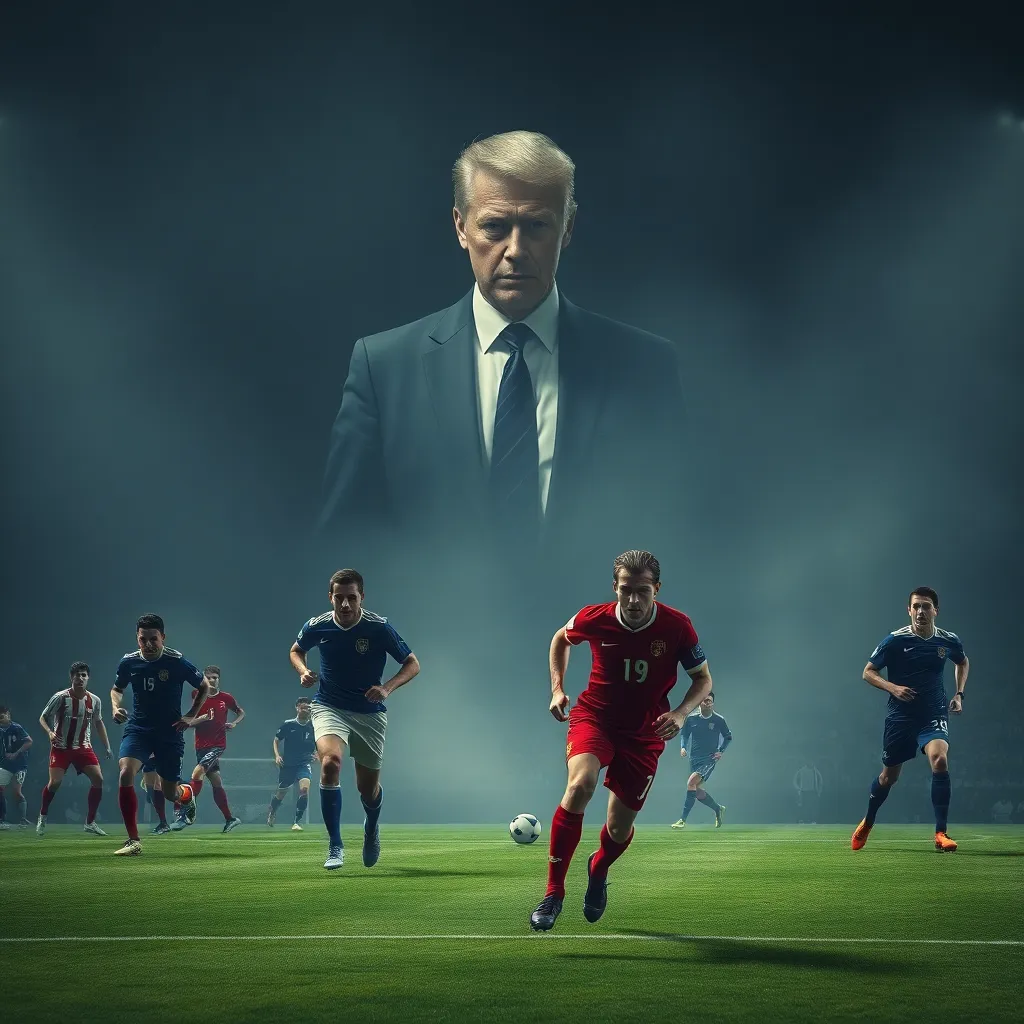When Sports and Politics Collide: The Bizarre World of International Tournaments
Moscow, Russia – In a world where every kick of a football seems to reverberate through the halls of power, the recent international sports tournaments have turned into a strange circus where politics, war, and the love of the game are all tangled up in one confusing spectacle.
A Game of Footy and Fury
In the latest twist, Hezbollah claimed responsibility for an attack it asserted was a response to Israeli strikes in Lebanon, and while this may sound like the opening line of a bad action movie, it’s a grim reality. The news somehow made its way into the sports world as players began to wonder if the next international tournament would be held with a side of military strategy.
Players on the field were left to ponder: “Will our next opponent come with a side of artillery?” As the world’s eyes turned to the pitch, the gentlemen in suits were busy with their own game plan, which seemed to be less about football and more about geopolitical chess.
Trent’s Left-Back Dilemma
Meanwhile, Trent Alexander-Arnold had his own tactical dilemma to deal with. The England football star played as a left-back and scored a stunning goal in a recent win against Finland. But did the experiment work?
“I’m not sure if he’s trying to defend or distract the other team with his hair,” joked one pundit, while another quipped, “Maybe he’s just trying to keep the peace by making everyone else focus on his spectacular mane rather than the game!” The audience was left wondering whether his role was more about scoring goals or defusing international tensions.
The Upset in the World of Darts
Amidst the chaos, a different sport was stealing headlines. Mike de Decker caused a huge upset by defeating defending champion Luke Humphries 6-4 to win the World Grand Prix title. While some might say that darts is a world apart from international politics, one has to wonder: how long until someone claims a dartboard is a peacekeeping tool?
“Darts is just like diplomacy,” said a cheeky commentator. “You throw a lot, and if you miss, you’re likely to get hurt!” As de Decker celebrated, one could almost hear the cheers of relief from those who just want to see sports remain a reprieve from the political turmoil.
A City Under Siege
The BBC recently visited a key city under attack by Russia, uncovering eroded morale among its few remaining residents. The report was a sobering reminder that while athletes are engaging in their competitions, real-life battles are being fought in the background. Here in a city where sports should be a distraction, citizens are more concerned about survival than the latest score.
One local remarked, “I’d trade a hundred football games for one peaceful day.” And who could blame them? As the world tunes in for the latest tournament, they’re reminded that sometimes the most important games aren’t played on the field but in the hearts of those who long for peace.
Budget Cuts and Bad Kicks
Back in the UK, Welsh councils are facing a £500 million budget gap, and as services begin to dwindle, one has to wonder if cutting funding for local sports means gutting the very fabric of community spirit. “We can’t even afford a good kickabout in the park anymore!” exclaimed a disgruntled local youth, who now resorts to playing football with a deflated ball and hopes of a brighter future.
As cuts loom, one can only hope that the spirit of sportsmanship will prevail over the bureaucratic nonsense.
Conclusion: The Goal for Peace
As we find ourselves caught in a whirlwind of sports and international affairs, it’s clear that whether it’s a goal scored or a dart thrown, the real victory lies in finding common ground. In the end, perhaps the only trophy we should be aiming for is one that symbolizes unity and peace.
So next time you watch a game, remember: it’s not just about the score; it’s about the spirit of competition and the hope for a better tomorrow. Because in this world of chaos, we could all use a little more of that.
